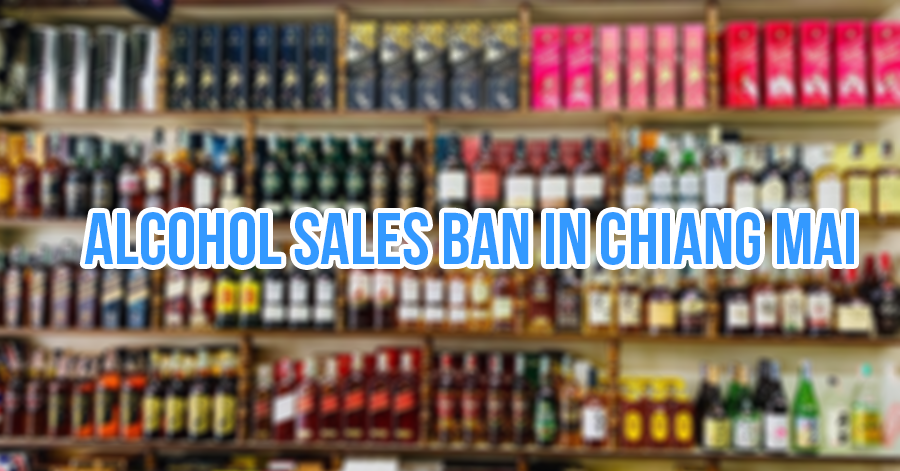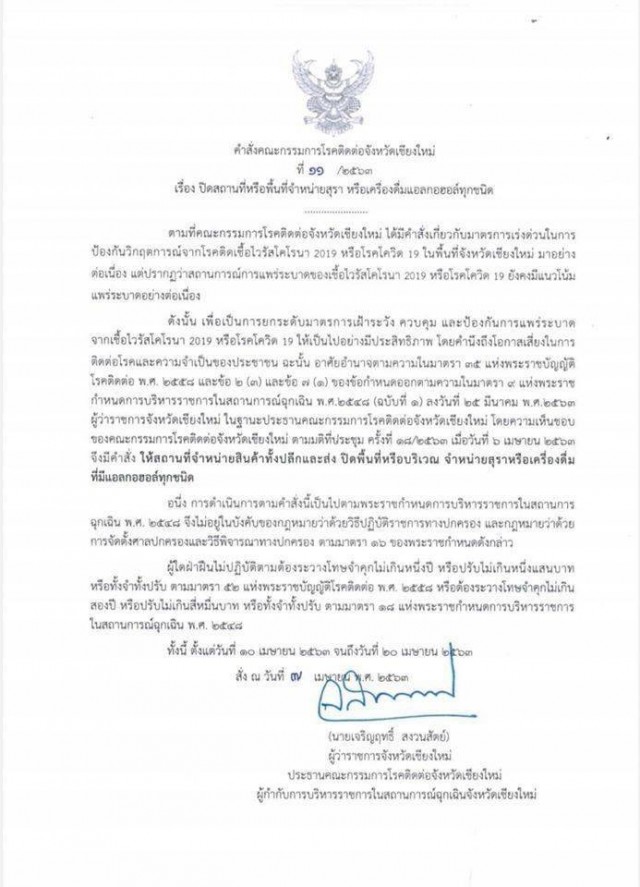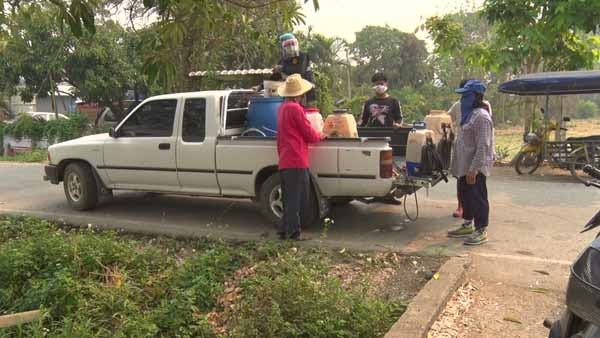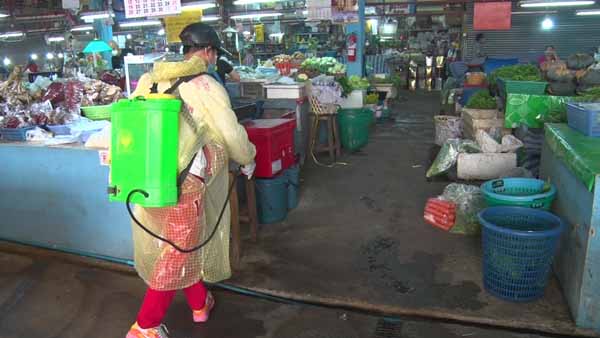Alcohol sale ban in Chiang Mai

Image adapted from: Sadamnern Whisky, Spirits Wine And Liqueur Store
The governor of Chiang Mai ordered a temporary alcohol ban to reinforce security measures within the province.
The ban came as a response to the lack of success in containing the virus within the region.
Also read:
Still struggling to prevent the spread

The official document for Chiang Mai’s alcohol ban
Image credit: Nation TV
From 10th – 20th April 2020, liquor stores in Chiang Mai will temporarily stop selling or distributing alcoholic beverages for 10 days.
The enforced ban is to ensure the province can effectively monitor the virus, as well as focus on preventing further infection and meeting the people’s needs. Banning alcohol means no social gatherings in public places such as bars, and less risk of incidents caused under the influence.
Even the citizens volunteered to help

Image credit: The Nation Thailand
There was recent news of Khilek villagers in the Mae Taeng subdistrict volunteering to set up checkpoints to screen body temperatures and record travel histories. The locals additionally provided health equipment such as masks and hand sanitizers to their community.

A group sprayed disinfectants around private and public areas, from homes to markets.
Image credit: The Nation Thailand
Chiang Mai puts foot down
Despite good measures by both the government and the locals to contain the virus, there is still a continuing trend within the province that shows no sign of stopping or significant improvement.
This action is according to Section 35 of the Communicable Diseases Act, BE 2558 (2015), and the Emergency Decree on Public Administration in Emergency Situation, BE 2548 (2005), that states that necessary countermeasures will happen if approved by the provincial governors or provincial CDCs.
In this case, alcohol is believed to be hindering progress from preventing the virus from spreading further.
Establishments that violate the imposed alcohol ban could face a year of imprisonment and/or a fine of up to ฿100,000 (Communicable Diseases Act), or 2 years of imprisonment and/or a fine of up to ฿40,000 under the Emergency Decree.
Enjoying The Smart Local Thailand? Follow us on Facebook and Instagram for all things Thailand

Drop us your email so you won't miss the latest news.






